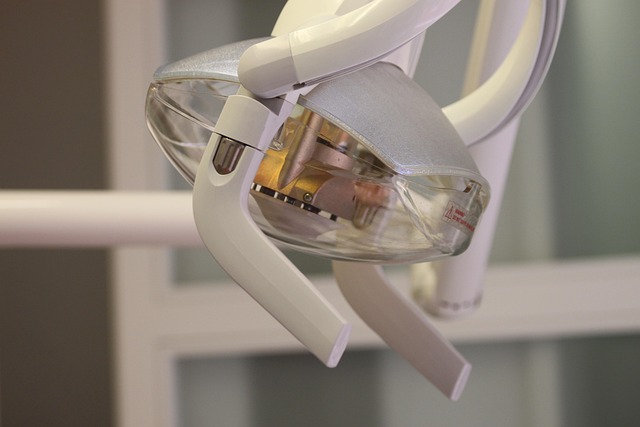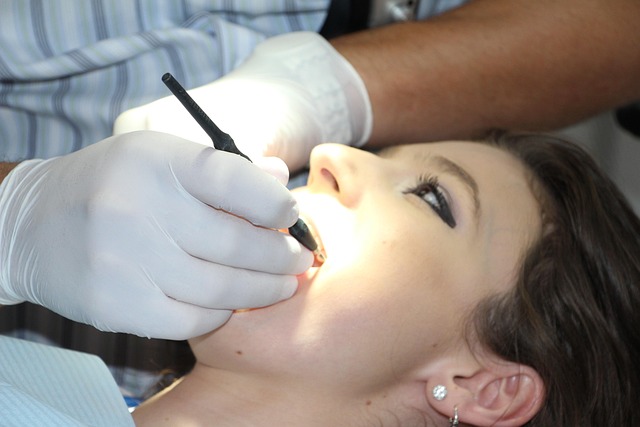Dental clinics face unique liability risks including malpractice claims and non-malpractice suits like discrimination. They require comprehensive insurance covering medical malpractice, professional liability, general liability, and property damage protection. Key policies include general liability, professional liability (malpractice), and property insurance to safeguard against bodily injury, equipment loss, and legal fees. Adequate insurance, combined with training and safe practices, fosters a positive clinic environment and enhances patient care. Navigating local, state, and federal requirements while evaluating insurance options ensures dental offices are fully protected.
Dental clinics face unique challenges when it comes to liability and property insurance. Understanding the potential risks is crucial for any dental practice’s success. This article explores the essential aspects of insurance for dental offices, focusing on common liabilities, various policy types, and specific coverages. From protecting your physical assets to shielding against legal claims, we navigate the complex landscape of insurance requirements tailored to dental practices, ensuring you’re equipped with knowledge to make informed decisions.
- Understanding Dental Clinic Liability: Common Risks and Exposure
- Types of Insurance Policies for Dental Offices
- Property Insurance Coverage for Dental Clinics: Protecting Your Investment
- Professional Liability Insurance: Shielding Your Practice from Legal Claims
- Employee and Patient Safety: Additional Insurance Considerations
- Navigating Insurance Requirements and Regulations for Dental Practices
Understanding Dental Clinic Liability: Common Risks and Exposure

Dental clinics, with their high-stakes environment and frequent patient interactions, face a unique set of liability risks. Understanding these potential hazards is crucial when considering insurance for dental offices. Common areas of exposure include malpractice claims related to negligence in treatment, personal injury from accidental events within the clinic, and even non-malpractice suits like discrimination or harassment.
The diverse nature of dental work—from routine checkups to complex procedures—means that clinics must be prepared for a wide range of outcomes. Insurance for dental offices should therefore cover not just typical medical malpractice, but also professional liability, general liability, and property damage. This comprehensive approach ensures that the clinic is protected against financial loss from both direct patient interactions and indirect risks associated with running a bustling dental practice.
Types of Insurance Policies for Dental Offices

Dental clinics, much like any other medical facility, require comprehensive insurance coverage to protect against potential risks and liabilities. When it comes to insuring dental offices, several key policies are essential to mitigate financial losses. First and foremost, general liability insurance is crucial. This type of insurance safeguards against claims of bodily injury or property damage that may occur during routine dental procedures or as a result of the clinic’s operations.
Additionally, professional liability insurance, often referred to as malpractice insurance, is an absolute must. It provides coverage for errors or omissions in dental treatment, offering protection should a patient file a lawsuit due to perceived negligence. Dental offices also benefit from property insurance to safeguard their physical assets, including equipment, furniture, and inventory. This ensures financial security in the event of damage, theft, or destruction of these valuable resources, which are integral to the clinic’s day-to-day operations.
Property Insurance Coverage for Dental Clinics: Protecting Your Investment

Dental clinics, with their advanced equipment and sensitive patient data, require a comprehensive insurance plan that goes beyond general liability coverage. Property insurance is an essential component that safeguards your investment in the clinic’s physical assets. This includes protection against damage or loss due to fires, storms, vandalism, or other unforeseen events. By insuring the building, its structure, and valuable equipment like X-ray machines, dental chairs, and surgical instruments, you ensure that rebuilding or replacement costs are covered, minimizing financial strain in case of a claim.
Choosing the right property insurance for dental offices involves understanding different coverage options. You may opt for all-risk insurance, which provides broad protection, or select specific perils based on your clinic’s unique needs. For instance, water damage from leaks or flooding might be excluded, so consider adding these as endorsements to your policy. Additionally, business interruption coverage can help maintain financial stability during periods when the clinic is forced to close due to insured events, ensuring continuity of operations and income during recovery.
Professional Liability Insurance: Shielding Your Practice from Legal Claims

Professional Liability Insurance, often referred to as malpractice insurance, is a crucial component in safeguarding your dental clinic from potential legal claims. This type of coverage protects against accidents or errors made during dental procedures that result in patient harm. Dental professionals face unique risks due to the intricate nature of their work; therefore, having the right insurance for dental offices is essential.
When you’re insured, your dental practice gains an extra layer of protection. If a patient alleges negligence or seeks compensation for perceived malpractice, professional liability insurance covers legal fees and damages, up to the policy limits. This financial shield enables you to focus on providing quality care without the constant worry of potential lawsuits, ensuring that your dental clinic operates with peace of mind.
Employee and Patient Safety: Additional Insurance Considerations

In the fast-paced and high-responsibility environment of dental clinics, employee and patient safety should be a top priority. Dental professionals deal with intricate procedures and sensitive patient information on a daily basis. As such, comprehensive insurance for dental offices is not just beneficial but essential. This includes specific coverage for medical malpractice, which can protect the clinic from significant financial losses in case of accidents or errors during treatments.
Employee safety is another critical aspect often overlooked. Dental staff may face risks ranging from chemical exposure to ergonomic issues due to prolonged sitting. Adequate insurance should consider these potential hazards and offer protection against workplace injuries. Moreover, ensuring patient safety through proper training and equipment can mitigate risks and contribute to a positive clinic reputation, making it an integral part of any dental office’s risk management strategy.
Navigating Insurance Requirements and Regulations for Dental Practices

Navigating the complex landscape of insurance requirements and regulations for dental practices is essential for any clinic owner. Dental offices, due to their specialized nature and potential risks, face unique challenges when it comes to liability and property coverage. The first step is understanding the specific obligations imposed by local, state, and federal entities. This includes adhering to safety standards, obtaining proper licenses, and ensuring compliance with patient privacy laws like HIPAA.
Dental clinics must carefully evaluate their insurance options, considering general liability, professional liability (malpractice), and property insurance policies. General liability protects against claims of bodily injury or property damage, while professional liability safeguards against malpractice suits. Property insurance, on the other hand, covers losses related to physical assets, equipment, and inventory. Combining these coverages ensures dental practices are adequately protected, allowing them to focus on providing quality care to their patients.
